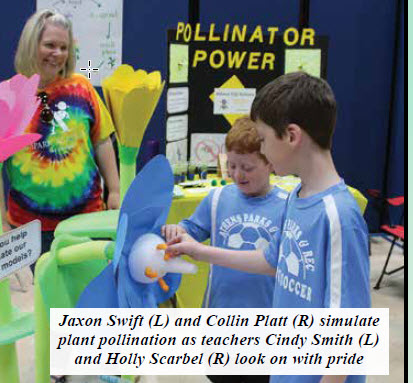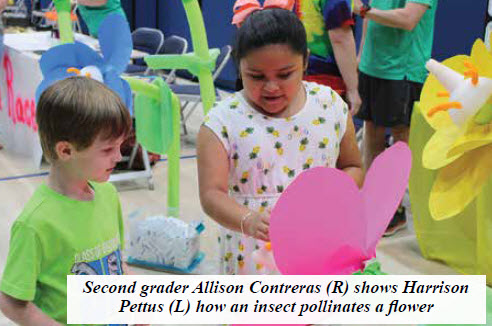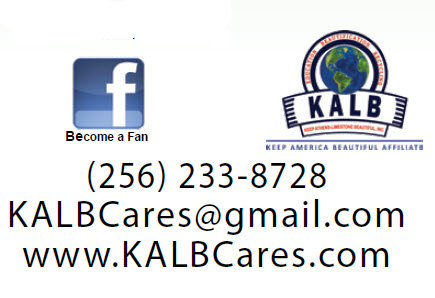Clean and Green – Pollinators, Cheese Doodles, and Chocolate – What You Might Not Know
 By: Lynne Hart
By: Lynne Hart
We could not be happier with how the 11th Earth Day & Outdoor EXPO went on Saturday, April 27! The weather was perfect, the crowd was steady, and everyone had a great time!
I was most impressed with the Pollinator Power exhibit put together by second grade students and teachers from Cowart Elementary SPARK Academy. According to Jennifer Kennedy, SPARK Lab teacher, the exhibit was a team effort and included work by Jill Daniel, Leigh Ann Fleming, Holly Scarbel, Cindy Smith, and art teacher Leah Pierce.
My coworker Leigh and I visit just about every 5th and 6th grade class in Athens and Limestone County schools and make a point to talk about pollinators. I am always quite surprised by the number of students that only know that bees make honey and can’t tell me why they might be important to food production.

My faith was restored when Allison Contreras, a second grader from SPARK Academy, explained the entire pollination process using the giant flowers at their exhibit. Cheese doodles were used as flower stamens which are the pollen-producing part of a flower. When a child (or adult) touched the cheese doodle “stamen,” the orange cheese powder “pollen” stuck to their fingers. When they touched the Styrofoam “pistil” of another flower, the orange powder was transferred to the new flower. Viola! Pollination!
Why Is Pollination Important?
When bees, butterflies, wasps, hummingbirds, beetles, and other pollinators move from flower to flower, they aren’t thinking about pollen or pollination. They are seeking the sweet nectar they love. In the process of finding the nectar, pollen sticks to their feet, wings, and other body parts. Pollen is not what they are after, but as they seek their food, they are doing nature’s work pollinating nearly 75% of our crops!
The seeds, fruits, and vegetables produced through the pollination process are critical to humans and wildlife. Remember, the food produced includes CHOCOLATE and COFFEE! That certainly moves the importance level of our pollinators up a notch or two!
Pollinators Need Help
According to the U.S. Fish & Wildlife Service, pollinators in the United States contributed to over $29 billion of crops in 2010, with over $19 billion by honey bees alone. A recent study of the status of pollinators in North America by the National Academy of Sciences found that populations of honey bees and some wild pollinators are declining. Declines in wild pollinators may be a result of habitat loss and degradation, while declines in managed bees are linked to disease.

Here are simple things you can do to help:
- Plant a pollinator garden. Choose plants that flower at different times of the year to provide nectar and pollen sources throughout the growing season. When possible, choose native plants. Ask a Master Gardener or check with the Limestone County Extension Office for suggestions.
- Provide nesting sites. Learn about the types of pollinators you’d like to attract and how to provide them with shelter.
- Avoid or limit pesticide use. Pesticides can kill more than the pest you are targeting, and some pesticides can kill pollinators for several days after use. If you kill natural predators, it will lead to an even more difficult pest problem.
So the next time you enjoy a juicy peach, a sweet ear of corn, or your morning cup of coffee, thank a pollinator and do what you can to protect them.
By: Lynne Hart
Executive Coordinator – Keep Athens-Limestone Beautiful
